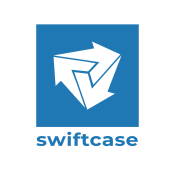As your business grows and you hire more staff, you may struggle with issues surrounding access to critical company information or system functionality. You do not want a newly-recruited junior employee to have access to every significant business document, but you cannot shut out more senior staff members from vital information.
No more, no less
The ideal situation is one where every staff member has access to precisely the information and system features they need, no more and no less. Attaching passwords to documents such as spreadsheets is one solution. However, this is unsophisticated and prone to security lapses.
Secure and simple
Role-based access management offers a secure and manageable way for you to manage the critical business information available to individual members of staff. Users are designated system roles that correspond to the level of responsibility and authority they have in the organisation as a whole. As well as seniority, roles can be assigned by department, such as IT or accounting.
A clear path forward
An inventory of all systems and information is essential to have before you can even consider assigning roles. Make a thorough list of any software or documents used, and talk to staff about what they need for their work on a regular basis. You may even find people are already accessing the information you would rather they did not.
Users can be sorted into groups and assigned roles accordingly. There is no reason an employee could not have multiple roles. For instance, the head of an accounting department could be appointed management and accounting system access.
It is essential to have clear guidelines and decide beforehand what qualifies a particular role. Strictly avoid making one-off exceptions or granting access for a limited time-period. If you find yourself doing this, there may be overall issues that need to be resolved within your system.
Review accordingly
Your access management procedures can be reviewed over time. Both on an individual level (in the case of a promotion or department-move) and also what access is granted to a group as a whole. As your organisation grows and changes, roles may be created or dropped entirely according to your requirements. Nothing has to be set in stone, but if changes are made, they need to be adhered to.
How SwiftCase helps
SwiftCase is a cloud-based business process management platform with sophisticated and adaptable role-based functionality. Users can be assigned system access based on job position, department, and specific features. Senior staff can be given a broad overview of the entire organisation, while more junior employees might only be able to view the work they are specifically involved in.
Alongside other security measures such as two-factor authentication and strong password policies, intelligent, role-based access severely minimises the risk of data leaks or hacking.
Get in touch with us today, for a free, no obligation demonstration.
